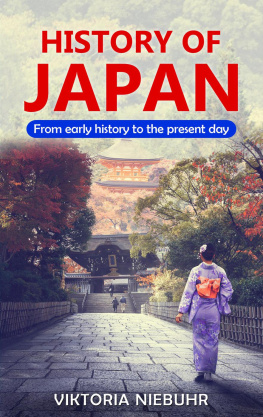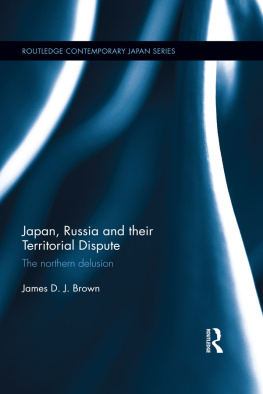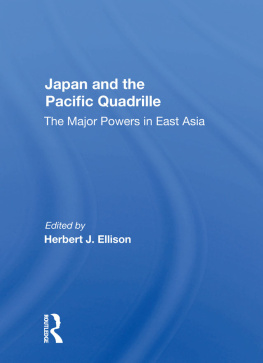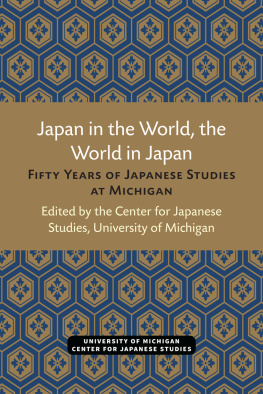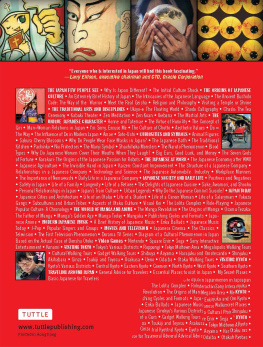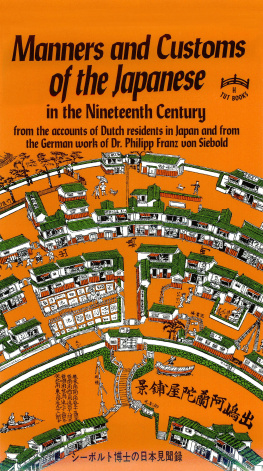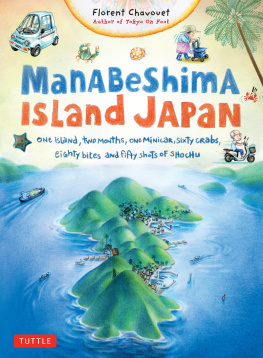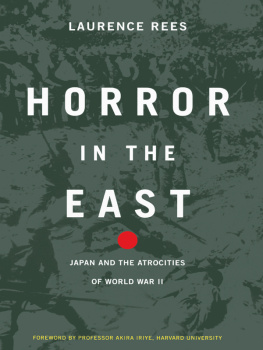CHAPTER I
THE LAND OF THE RISING SUN
Far away from our land, on the other side of the world, lies a group of islands which form the kingdom of Japan. The word "Japan" means the "Land of the Rising Sun," and it is certainly a good name for a country of the Far East, the land of sunrise.
The flag of Japan, too, is painted with a rising sun which sheds its beams on every hand, and this flag is now for ever famous, so great and wonderful have been the victories in which it has been borne triumphant over Russian arms.
In some ways the Japanese are fond of comparing themselves with their English friends and allies. They point out that Japan is a cluster of islands off the coast of Asia, as Britain is a cluster of islands off the coast of Europe. They have proved themselves, like the English, brave and clever on the sea, while their troops have fought as nobly as British soldiers on the land. They are fond of calling themselves the "English of the East," and say that their land is the "Britain of the Pacific."
The rise of Japan in becoming one of the Great Powers of the world has been very sudden and wonderful. Fifty years ago Japan lay hidden from the world; she forbade strangers to visit the country, and very little was known of her people and her customs.
Her navy then consisted of a few wooden junks; to-day she has a fleet of splendid ironclads, handled by men who know their duties as well as English seamen. Her army consisted of troops armed with two swords and carrying bows and arrows; to-day her troops are the admiration of the world, armed with the most modern weapons, and, as foes, to be dreaded by the most powerful nations.
Fifty years ago Japan was in the purely feudal stage. Her great native Princes were called Daimios. Each had a strong castle and a private army of his own. There were ceaseless feuds between these Princes and constant fighting between their armies of samurai, as their followers were called. Japan was like England at the time of our War of the Roses: family quarrels were fought out in pitched battle. All that has now gone. The Daimios have become private gentlemen; the armies of samurai have been disbanded, and Japan is ruled and managed just like a European country, with judges, and policemen, and law-courts, after the model of Western lands.
When the Japanese decided to come out and take their place among the great nations of the world, they did not adopt any half-measures; they simply came out once and for all. They threw themselves into the stream of modern inventions and movements with a will. They have built railways and set up telegraph and telephone lines. They have erected banks and warehouses, mills and factories. They have built bridges and improved roads. They have law-courts and a Parliament, to which the members are elected by the people, and newspapers flourish everywhere.
Japan is a very beautiful country. It is full of fine mountains, with rivers leaping down the steep slopes and dashing over the rocks in snowy waterfalls. At the foot of the hills are rich plains and valleys, well watered by the streams which rush down from the hills. But the mountains are so many and the plains are so few that only a small part of the land can be used for growing crops, and this makes Japan poor. Its climate is not unlike ours in Great Britain, but the summer is hotter, and the winter is in some parts very cold. Many of the mountains are volcanoes. Some of these are still active, and earthquakes often take place. Sometimes these earthquakes do terrible harm. The great earthquake of 1871 killed 10,000 people, injured 20,000, and destroyed 130,000 houses.
The highest mountain of Japan also is the most beautiful, and it is greatly beloved by the Japanese, who regard it as a sacred height. Its name is Fujisan, or Fusi-Yama, and it stands near the sea and the capital city of Tokyo. It is of most beautiful shape, an almost perfect cone, and it springs nearly 13,000 feet into the air. From the sea it forms a most superb and majestic sight. Long before a glimpse can be caught of the shore and the city, the traveller sees the lofty peak, crowned with a glittering crest of snow, rising in lonely majesty, with no hint of the land on which it rests. The Japanese have a great love of natural beauty, and they adore Fujisan. Their artists are never tired of painting it, and pictures of it are to be found in the most distant parts of the land.
CHAPTER II
BOYS AND GIRLS IN JAPAN
In no country in the world do children have a happier childhood than in Japan. Their parents are devoted to them, and the children are always good. This seems a great deal to say, but it is quite true. Japanese boys and girls behave as quietly and with as much composure as grown-up men and women. From the first moment that it can understand anything, a Japanese baby is taught to control its feelings. If it is in pain or sad, it is not to cry or to pull an ugly face; that would not be nice for other people to hear or see. If it is very merry or happy, it is not to laugh too loudly or to make too much noise; that would be vulgar. So the Japanese boy or girl grows up very quiet, very gentle, and very polite, with a smile for everything and everybody.
While they are little they have plenty of play and fun when they are not in school. In both towns and villages the streets are the playground, and here they play ball, or battledore and shuttlecock, or fly kites.
Almost every little girl has a baby brother or sister strapped on her back, for babies are never carried in the arms in Japan except by the nurses of very wealthy people. The baby is fastened on its mother's or its sister's shoulders by a shawl, and that serves it for both cot and cradle. The little girl does not lose a single scrap of her play because of the baby. She runs here and there, striking with her battledore, or racing after her friends, and the baby swings to and fro on her shoulders, its little head wobbling from side to side as if it were going to tumble off. But it is perfectly content, and either watches the game with its sharp little black eyes, or goes calmly off to sleep.
In the form of their dress both boys and girls appear alike, and, more than that, they are dressed exactly like their parents. There is no child's dress in Japan. The garments are smaller, to fit the small wearers--that is all.
The main article of dress is a loose gown, called a kimono. Under the outer kimono is an inner kimono, and the garments are girt about the body with a large sash, called an obi. The obi is the pride of a Japanese girl's heart. If her parents are rich, it will be of shining costly silk or rich brocade or cloth of gold; if her parents are poor, they will make an effort to get her one as handsome as their means will allow. Next to her obi, she prides herself on the ornaments which decorate her black hair--fine hairpins, with heads of tortoiseshell or coral or lacquer, and hair-combs, all most beautifully carved.


